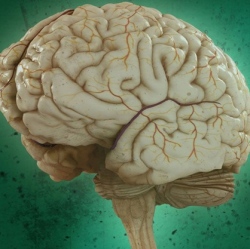
Over 47.5 million people worldwide have Alzheimer’s disease or some other type of dementia, according to the World Health Organization. Despite decades of research, the only medications currently available treat the symptoms alone.
This study highlights what might prove to be a missing link in the field. Researchers initially tried to understand why the brain’s stem cells, which normally help repair brain damage, are unresponsive in Alzheimer’s disease. Doctoral student Laura Hamilton was astonished to find fat droplets near the stem cells, on the inner surface of the brain in mice predisposed to develop the disease.
“We realized that Dr. Alois Alzheimer himself had noted the presence of lipid accumulations in patients’ brains after their death when he first described the disease in 1906. But this observation was dismissed and largely forgotten due to the complexity of lipid biochemistry”, said Laura Hamilton.
The researchers examined the brains of nine patients who died from Alzheimer’s disease and found significantly more fat droplets compared with five healthy brains. A team of chemists from University of Montreal led by Pierre Chaurand then used an advanced mass spectrometry technique to identify these fat deposits as triglycerides enriched with specific fatty acids, which can also be found in animal fats and vegetable oils.
“We discovered that these fatty acids are produced by the brain, that they build up slowly with normal aging, but that the process is accelerated significantly in the presence of genes that predispose to Alzheimer’s disease”, explained Karl Fernandes.
In mice predisposed to the disease, we showed that these fatty acids accumulate very early on, at two months of age, which corresponds to the early twenties in humans. Therefore, we think that the build-up of fatty acids is not a consequence but rather a cause or accelerator of the disease.”
